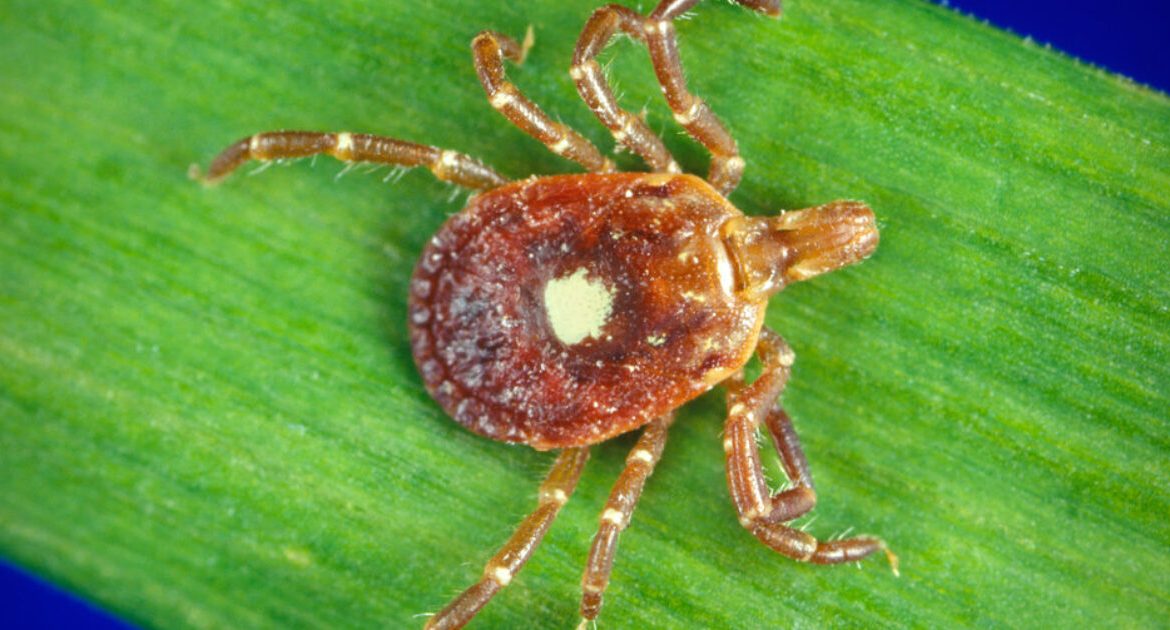
47-Year-Old New Jersey Pilot Becomes First Recorded Death from a Rare Meat Allergy Triggered by Tick Bites


A healthy 47-year-old man from New Jersey has died after eating red meat, a death now confirmed as the first known fatality linked to Alpha‑gal syndrome (AGS), a rare meat allergy triggered by tick bites.
The New Jersey man, an airline pilot who had no major health issues, experienced severe symptoms following the consumption of a beef steak during a camping trip in the summer of 2024.
He reported abdominal discomfort, diarrhea, and vomiting, which later subsided.
Approximately two weeks later, he consumed a hamburger at a barbecue, and about four hours after eating, he was found unconscious and later pronounced dead at a hospital.
Initially, the cause of death was listed as “sudden unexplained death” due to inconclusive autopsy results.
However, after his wife prompted further investigation, blood samples were tested, revealing an extreme allergic reaction to alpha-gal, consistent with fatal anaphylaxis.

His wife noted that he had numerous “chigger” bites around his ankles earlier that summer, which researchers identified as likely being from the larvae of lone star ticks, the primary vector for AGS.
The allergy, known formally as Alpha-gal syndrome (AGS), arises after a bite from certain ticks, notably the Lone Star tick (Amblyomma americanum) in the U.S., which transfers the sugar molecule alpha-gal from its saliva into a person’s bloodstream, according to the CDC.
Subsequent ingestion of mammalian meat (beef, pork, lamb) can trigger a delayed‐onset allergic reaction (3-6 hours later) that ranges from rash and nausea to full anaphylaxis.
According to the CDC, “More than 110,000 suspected cases of AGS were identified between 2010 and 2022. However, cases of AGS are not nationally notifiable to CDC. The actual number of AGS cases in the United States is not known, but as many as 450,000 people may be affected. More data and research are needed to understand how many people are affected by this condition.”
Until this case, fatal reactions had been considered theoretically possible but unconfirmed. Now, with this death documented, the medical community must treat AGS as not only serious but potentially lethal.
Center for Infectious Disease Research and Policy (CIDRAP) at the University of Minnesota wrote:
A previously healthy New Jersey man has been identified by an allergist at the University of Virginia (UVA) and his coauthors as suffering the first documented fatality from alpha-gal syndrome, a meat allergy triggered by tick bites. The case study was published in the Journal of Allergy and Clinical Immunology in Practice yesterday.
[…]
The cause of death was ruled “sudden unexplained death,” after an autopsy was inconclusive, but the man’s wife gave the autopsy report to a doctor, who reached out to Thomas Platts-Mills, MD, PhD, the former chief of UVA Health’s Division of Asthma, Allergy and Clinical Immunology and first author of the case report.
Platts-Mills first identified alpha-gal syndrome in 2007 and is considered the foremost expert on the allergy.
In post-mortem blood samples, Platts-Mills found that the man had been sensitized to alpha-gal, and had had an extreme reaction, in line with what is seen in fatal anaphylaxis. Platts-Mills told CIDRAP news that the man’s tryptase level, a marker for mast-cell activation in allergic reactions, was 2,000 milligrams per milliliter. The highest tryptase level he had previously seen was 90.
Platts-Mills said the man’s wife reported he did not have recent tick bites, but had 12 or 13 chigger bites around his ankles the summer he became ill. Platts-Mills said many “chigger bites” in the Eastern United States are actually bites from lone star tick larvae.
“It is important that both doctors and patients who live in an area of the country where lone star ticks are common should be aware of the risk of sensitization,” Platts-Mills said in a UVA press release. “More specifically, if they have unexpected episodes of severe abdominal pain occurring several hours after eating mammalian meat, they should be investigated for possible sensitization to the oligosaccharide alpha-gal.”
[…]
Platts-Mills said that most cases of alpha-gal syndrome are still diagnosed on the East Coast, but the tick has been identified as far inland as Indiana, and he expects further spread.
The post 47-Year-Old New Jersey Pilot Becomes First Recorded Death from a Rare Meat Allergy Triggered by Tick Bites appeared first on The Gateway Pundit.
